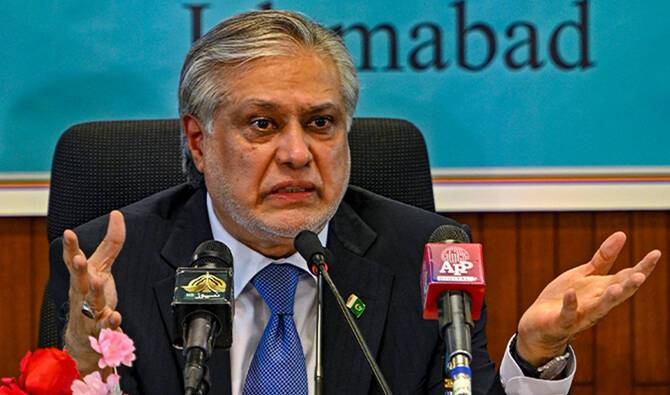Deputy Prime Minister and Foreign Minister Senator Mohammad Ishaq Dar has warned that the fragile ceasefire between Pakistan and India could be threatened if the water dispute, triggered by India’s suspension of the Indus Waters Treaty, is not addressed through dialogue.
In an interview, Dar made it clear that Pakistan has no intention of using nuclear weapons against India. He emphasized that Pakistan’s retaliatory strikes on May 7 were carried out purely in self-defense, following unprovoked Indian cross-border attacks.
Describing India's actions as a "war" and an attempt to assert regional dominance in Kashmir, Dar underscored that the nuclear option "was never on the table." He added, “We were confident in our conventional military capabilities—both in the air and on the ground.”
Although a ceasefire is currently holding, Dar stressed that comprehensive negotiations are still pending. “We hope reason will prevail,” he said, noting that unresolved issues such as the Indus Waters Treaty could destabilize peace efforts.
Dar stated there was no direct communication between Indian and Pakistani officials regarding the ceasefire. Instead, he credited US Secretary of State Marco Rubio for conveying India’s willingness to halt hostilities.
Highlighting Kashmir as the “root cause of regional instability,” Dar called for the region’s right to self-determination and reaffirmed Pakistan’s commitment to combating terrorism. He denied any Pakistani link to the recent Pahalgam attack.
He also expressed gratitude for US support, saying President Donald Trump’s encouragement of Pakistan’s counterterrorism efforts showed Washington’s trust in Islamabad’s intentions.
On the issue of water, Dar warned that India’s unilateral suspension of the Indus Waters Treaty amid rising tensions could be seen as an “act of war” if not reversed, adding, “The ceasefire cannot hold without resolving this critical issue.”








